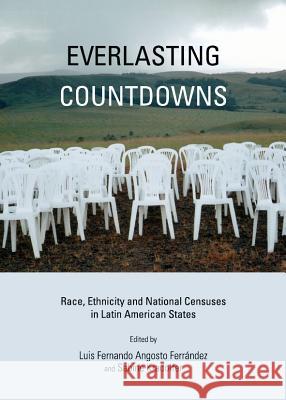Everlasting Countdowns: Race, Ethnicity and National Censuses in Latin American States » książka
Everlasting Countdowns: Race, Ethnicity and National Censuses in Latin American States
ISBN-13: 9781443841498 / Angielski / Twarda / 2012 / 350 str.
Politics, not demographics, is at the core of this book on censuses. The contributors to this volume once and for all remove the fig-leaves from census-making by historicising and contextualising a type of statistical practice that has become essential for the functioning (and understanding) of the contemporary state. The book includes superb cross-disciplinary studies on ethnic and racial census categorisation in Argentina, Bolivia, Brazil, Colombia, Guatemala, Panama, Peru and Venezuela (as well as two chapters that explicitly develop a comparative perspective). Against conventional wisdom, it provides conclusive evidence and new arguments for those who contend that in the practice of counting social identities there is no such thing as an exact or naturally objective method. These studies make clear that ethnic and racial categories in censuses are defined, used or obliterated in accordance with malleable conceptions of nationality, democracy and justice that depend on hegemonic ideologies and the goals that states set for themselves at particular historical periods. Given the prominence and the double-edged potential of the political articulation of identity categories, this book constitutes an indispensable source of information and insightful discussion for anyone interested in contemporary Latin American politics, and will undoubtedly raise the existing degree of public awareness, scrutiny and discussion around national population counts.











